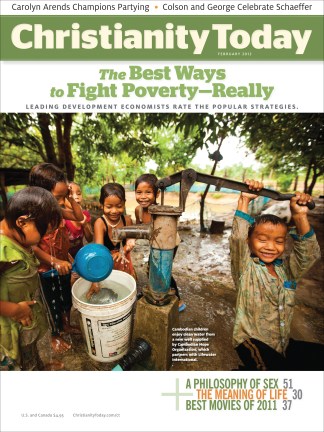 |
The Bible, the School, and the Constitution: The Clash That Shaped Modern Church-State Doctrine by Steven K. Green Oxford University Press, February 2012 304 pp., $29.95 |
For many Christians, nothing better signals secularism’s triumph than the banishment of formal prayer and Bible reading from America’s public schools. When the Supreme Court evicted God from the classroom, they say, the education system—indeed, the entire society—lost its moral bearings and started sliding swiftly downhill.
The Bible, the School, and the Constitution: The Clash that Shaped Modern Church-State Doctrine
OUP USA
304 pages
$42.65
Such laments suggest a nation abruptly sundered from its Christian heritage. Generations of students contentedly recite their prayers and Scripture passages, and then, in a flash, a handful of judicial tyrants intervene to scuttle a beloved tradition. Steven K. Green, director of the Center for Religion, Law, and Democracy at Willamette University, shows otherwise in his new book, The Bible, the School, and the Constitution: The Clash That Shaped Modern Church-State Doctrine (Oxford University Press). Vigorous debates over religion in public schools, it turns out, have a history nearly as long as the schools themselves. And dissatisfaction with the privileged place of Christianity long predates the early 1960s.
Nineteenth-century pioneers of “common” schooling sought to unify a pluralistic populace around democratic principles. In this task, they reckoned Christianity a valuable ally. But how to harness the faith’s virtue-generating potential without sowing sectarian strife? Green identifies two safeguards that formed an emerging consensus. Christian doctrine—in theory, the beliefs shared by all denominations—would serve as an instrument not of conversion but of character formation. And no public funding would go to Catholic parochial schools or to other church-based alternatives.
Were the “nonsectarian” and “no-funding” principles compatible with a pervasively Protestant public school establishment? In Green’s telling, Americans brooded throughout the 19th century over apparent mismatches between theory and reality. From the chambers of Congress to rural outposts, they engaged in a genuine “national conversation.” Though marred by anti-Catholicism and partisan politics, sincere convictions drove the conversation to a remarkable degree.
Could moral instruction survive without religious instruction? Did fairness entitle Catholics, already taxed to support an inhospitable school system, to receive taxpayer dollars for their own institutions? Were prayer and Bible reading truly as “nonsectarian” as their proponents supposed? And did their presence contravene the public school mission of openness to all? On these questions and numerous others, Protestants, Catholics, and freethinkers of all stripes held forth in sophisticated fashion, often forming unlikely coalitions.
Green recounts this history to illustrate how 19th-century arguments anticipated 20th-century church-state controversies. Well over a century ago, dissenters were convincing state and local governments to stop religious exercises. Modern secularists, campaigning to remove religious influences from public schools and restrict religious institutions from public funds, have drawn upon a mature tradition of legal reasoning.
About the outcomes such reasoning seeks, Green (once a litigator for Americans United for Separation of Church and State) is not impartial. But apart from bestowing encomiums like “prescient” and “innovative” upon the forerunners of modern secularism, his scholarly writing betrays scarcely any bias.
Christians have good reason to look with ambivalence upon the Supreme Court’s handling of school prayer and Bible reading. The separationist dogmas invoked to resolve these cases unleashed much mischief. But before bemoaning an alien ideology imposed by robed masters, look closely at the intellectual lineage that Green traces in this volume.
Matt Reynolds is CT associate editor.
Copyright © 2012 Christianity Today. Click for reprint information.
Related Elsewhere:
Previous Christianity Today articles about religion in schools include:
A Private Matter: Vanderbilt Vets Student Ministries | Campus ministries need different defenses. (December 15, 2011)
Education Is in Our DNA | We should support every effort to upgrade our failing schools. (December 13, 2011)
Agents of Translation: Philip Eaton on ‘Engaging the Culture, Changing the World’ | Christian colleges should fluently speak the language of both the gospel and the surrounding culture. (August 16, 2011)










